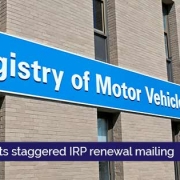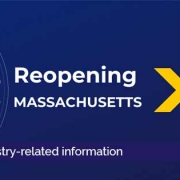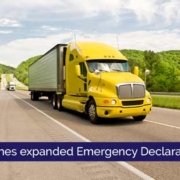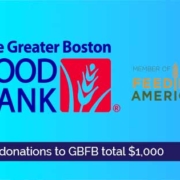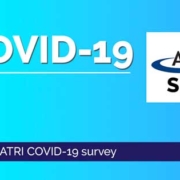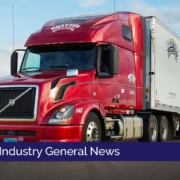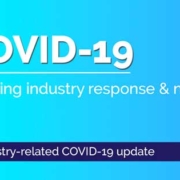The Federal Motor Carrier Safety Administration (FMCSA) hereby declares that a national emergency continues to exist that warrants extension of Emergency Declaration No. 2020-002 issued on March 13, 2020, expanded on March 18, 2020, and extended and further expanded on April 8, 2020. This extension continues the exemption granted from Parts 390 through 399 of the Federal Motor Carrier Safety Regulations (FMCSRs) for the fifty States and the District of Columbia. This Declaration extends the exemption through June 14, 2020.
Emergency Declaration 2020-002 was issued following the declaration of a national emergency by the President pursuant to 49 U.S.C. § 5191(b) in response to Coronavirus Disease 2019 (COVID-19), the public health emergency declared by the Health and Human Services Secretary, and the immediate risk COVID-19 presents to public health and welfare. Emergency Declaration 2020-002 is set to expire on May 15, 2020. Because the Presidentially declared COVID-19 national emergency remains in place, FMCSA is extending the Emergency Declaration No. 2020-002 and associated regulatory relief in accordance with 49 CFR § 390.25. This extension of Emergency Declaration addresses national emergency conditions that create a need for immediate transportation of essential supplies, equipment and persons, and provides necessary relief from the FMCSRs for motor carriers and drivers engaged in the transport of essential supplies, equipment and persons.
By execution of this extension of Emergency Declaration No. 2020-002, motor carriers and drivers providing direct assistance in support of relief efforts related to the COVID-19 national emergency are granted emergency relief from Parts 390 through 399 of the FMCSRs, except as restricted herein. Direct assistance means transportation and other relief services provided by a motor carrier or its driver(s) incident to the immediate restoration of essential services (such as medical care) or essential supplies (such as food and fuel) related to COVID-19 during the emergency.
The extension of Emergency Declaration 2020-002 provides regulatory relief for commercial motor vehicle operations providing direct assistance in support of emergency relief efforts related to COVID-19, including transportation to meet immediate needs for:
- medical supplies and equipment related to the testing, diagnosis and treatment of COVID-19;
- supplies and equipment necessary for community safety, sanitation, and prevention of community transmission of COVID-19 such as masks, gloves, hand sanitizer, soap and disinfectants;
- food, paper products and other groceries for emergency restocking of distribution centers or stores;
- immediate precursor raw materials — such as paper, plastic or alcohol — that are required and to be used for the manufacture of items in categories (1), (2) or (3);
- fuel;
- liquefied gases to be used in refrigeration or cooling systems;
- equipment, supplies and persons necessary to establish and manage temporary housing, quarantine, and isolation facilities related to COVID-19;
- persons designated by Federal, State or local authorities for medical, isolation, or quarantine purposes; and
- persons necessary to provide other medical or emergency services, the supply of which may be affected by the COVID-19 response. Direct assistance does not include routine commercial deliveries, including mixed loads with a nominal quantity of qualifying emergency relief added to obtain the benefits of this emergency declaration.
Emergency Declaration Restrictions & Limitations
By execution of this extension to Emergency Declaration 2020-002, motor carriers and drivers providing direct assistance to the national emergency are not granted emergency relief from, and must continue to comply with, the following Federal Motor Carrier Safety Regulations and conditions:
- 49 CFR § 392.2 related to the operation of a commercial motor vehicle in accordance with State laws and regulations, including compliance with applicable speed limits and other traffic restrictions.
- 49 CFR § 392.3 related to operation of a commercial motor vehicle while a driver’s ability or alertness is so impaired, or so likely to become impaired, through fatigue, illness, or any other cause, as to make it unsafe for him/her to begin or continue to operate the motor vehicle.
- Motor carriers shall not require or allow fatigued drivers to operate a commercial motor vehicle. A driver who informs a carrier that he/she needs immediate rest shall be given at least ten consecutive hours before the driver is required to return to service.
- A motor carrier whose driver is involved in a crash while operating under this emergency declaration must report any recordable crash within 24 hours, by phone or in writing, to the FMCSA Division Office where the motor carrier is domiciled. The carrier must report the date, time, location, driver, vehicle identification, and brief description of the crash.
- Nothing in this Emergency Declaration shall be construed as an exemption from the controlled substance and alcohol uses and testing requirement (49 CFR Part 382), the commercial driver’s license requirements (49 CFR Part 383), the financial responsibility (insurance) requirements (49 CFR Part 387), the hazardous material regulations (49 CFR Parts 100-180), applicable size and weight requirements, or any other portion of the regulations not specifically exempted under 49 CFR § 390.23.
- Motor carriers or drivers currently subject to an out-of-service order are not eligible for the relief granted by this declaration until they have met the applicable conditions for its rescission and the order has been rescinded by FMCSA in writing.
- Direct assistance terminates when a driver or commercial motor vehicle is used in interstate commerce to transport cargo or provide services that are not in support of emergency relief efforts related to COVID-19 or when the motor carrier dispatches a driver or commercial motor vehicle to another location to begin operations in commerce. (49 CFR § 390.23(b)). Upon termination of direct assistance to emergency relief efforts related to COVID-19, the motor carrier and driver are subject to the requirements of 49 CFR Parts 390 through 399, except that a driver may return empty to the motor carrier’s terminal or the driver’s normal work reporting location without complying with Parts 390 through 399. When a driver is moving from emergency relief efforts to normal operations a 10-hour break is required when the total time a driver operates conducting emergency relief efforts, or a combination of emergency relief and normal operations, equals 14 hours.
In accordance with 49 CFR § 390.25, this extension of Emergency Declaration No. 2020-002 is effective immediately and shall remain in effect until 11:59 P.M. (ET), June 14, 2020, or until the revocation of the Presidentially declared COVID-19 national emergency, whichever is sooner.
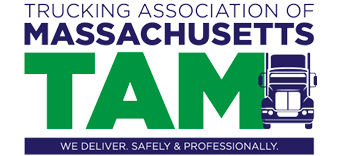
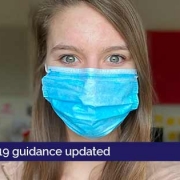


 TAM will be making its third COVID-19 donation this week to a needy charity. Heading Home supports more than 1,200 clients as they move out of homelessness. Their work is very much front line as they do their best to keep a very vulnerable population safe.
TAM will be making its third COVID-19 donation this week to a needy charity. Heading Home supports more than 1,200 clients as they move out of homelessness. Their work is very much front line as they do their best to keep a very vulnerable population safe.